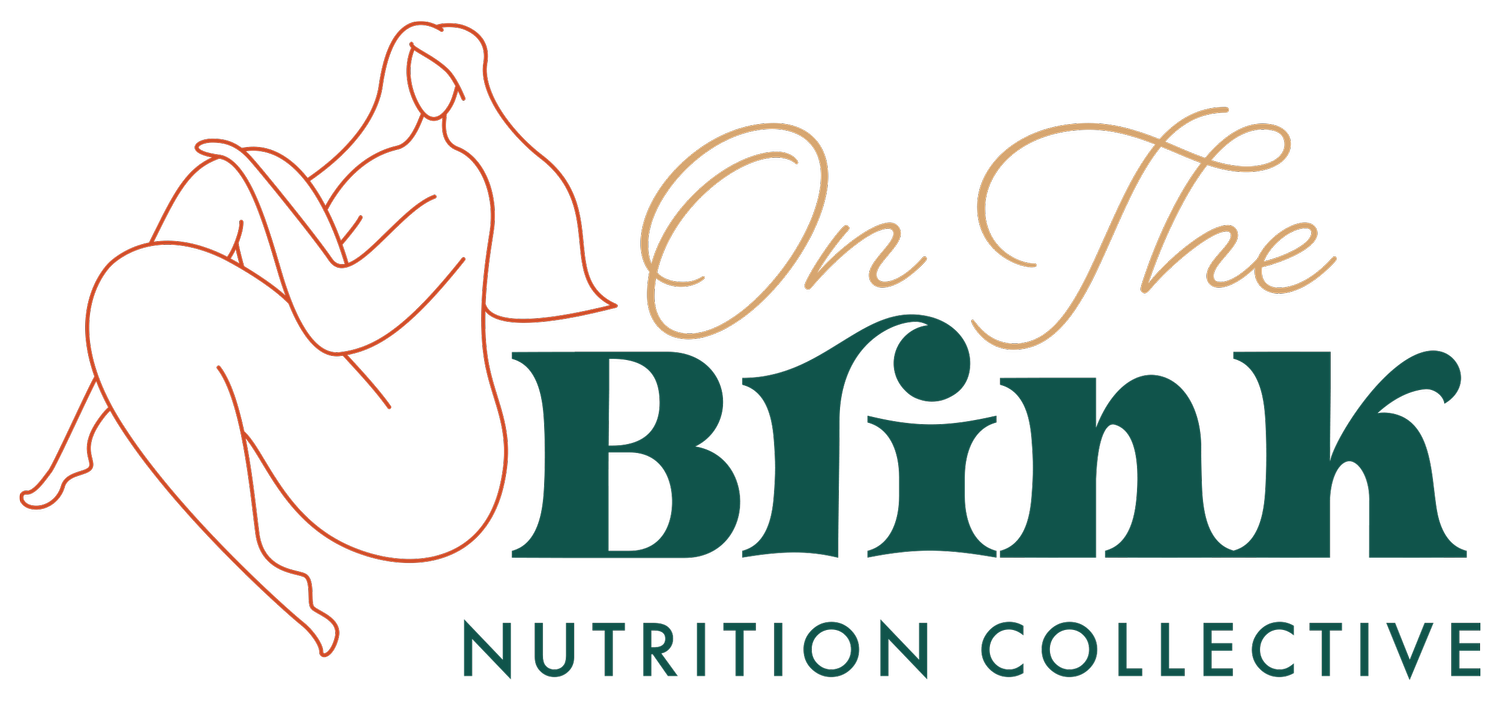Intuition: What Is It And Who Has It?
In 2018, I officially became a certified Intuitive Eating counselor.
The Intuitive Eating approach integrates instinct, emotion, and rational thought and was created by two dietitians, Evelyn Tribole and Elyse Resch in 1995. It is promoted as a weight-inclusive, evidence-based model to help people tune-in and trust their body cues to meet biological and psychological needs for wellbeing. The Intuitive Eating approach was created as a self-care eating framework that laid a path away from weight loss dieting by identifying and removing variables (which usually come from internal and external rules, beliefs, and thoughts) that disrupt attuned eating.
Unfortunately, diet culture, the patriarchy, and toxic capitalism have slipped a Roofie to the Intuitive Eating approach, forcing it into a hoodie and lulu lemon leggings and placed it on a beach at sunset or sparsely decorated urban coffee shop (with maybe 2 skillfully placed succulents in the background...you know the one). The ones shown to have mastered intuitive eating are often represented as white, young, cisgender heterosexual, straight-sized, able-bodied, and female-identifying; or, so Instagram posts would have us believing.
So, when my clients come to me asking for assistance in becoming an intuitive eater, I feel a call to pause and proceed slowly with curiosity and compassion in an effort to really understand what they are after.
Let’s step away from the commercialized version of Intuitive Eating you’ve been seeing in mainstream media. Let’s back up and, first, talk about intuition.
According to the Oxford English Dictionary, intuition is ‘‘the ability to understand something immediately, without conscious reasoning; an idea or a strong feeling that something is true although you cannot explain why.”
This group of researchers went a bit further to define intuition as the ‘‘preliminary perception of coherence (pattern, meaning, structure) that is at first not consciously represented but instead embodied in a ‘‘gut feeling’’ or an initial guess that subsequently biases our thought and inquiry.” I like this definition because it includes the impact of the passing of time: past emotional experiences create future gut feelings.
Intuition is a prized gift especially as it is used to describe the supposed superpower held by women and mothers.
Ask any women about walking alone at night and you will hear about an intuition to plan carefully-chosen, well-lit routes, carrying car keys between their fingers as their only way of self defence, texting friends the details of their route home in case something happens.
Ask any mom who has a hunch there is something amiss with her child as he progresses through school only to be told everything is fine, he’s just being a boy. But driven by gut-feeling and persistence, finally finds the right person to uncover dyslexia.
Last week, I wrote on the topic of threat and motivation. This leads me to wonder: Who has trustworthy intuition and how does one hone skills to build trustworthy intuition?
It is an automatic (unconscious) response to want to stay safe, belong to a group, and be treated with dignity and respect. So, one might say that dieting-for-weight loss is an intuitive way of eating of sorts. Aligning eating behaviors to comply with a divisive diet culture and following a restrictive set of diet rules to strive for (or perform striving for) a body size that meets the dominant beauty and health standard is a way of eating based on instinct, emotion, and rational thought.
Let me be clear, I am not defending weight loss dieting. I am defending a nervous system that is doing its best to keep us safe, connected, and worthy of respect. And, when I say defend, I mean making explicit that we are all programmed with automatic responses that feel true and instinctual.
If you have spent your life identifying as and performing the behavior of “dieter”, it is likely that you will eventually come to a place of cognitive dissonance (feeling conflicted) about what dieting is asking of you and having a hunch that there must be another way. If this describes you, a new neural pathway is being paved for the development of a competing instinctual knowing that weight loss dieting is not a long term solution to caring for their body, health, and wellbeing.
You are not alone. There are other who are on this journey as well.
Over the next couple of weeks, I will be diving further into intuition and intuitive eating. Stay tuned. Leave a comment if you have an opinion or experience that could help others who are on the journey of moving away from dieting towards a relationship with food and body that is more wise and sustainable.
